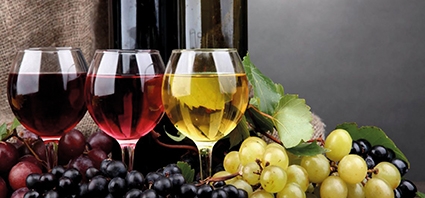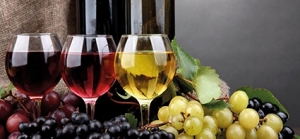Georgian Companies Have Not Been Banned from Exporting Wine to Russia
Following Vladimir Putin's July 8 travel embargo, the Russian Federal Service for Surveillance on Consumer Rights Protection and Human Wellbeing released a negative statement against Georgian wine.
Russia said it was tightening control on Georgian wine as tensions rose between the two countries after days of anti-Kremlin protests in Tbilisi.
According to their statement, the quality of wine and other alcoholic beverages imported from Georgia “is deteriorating by the year,” so forcing them to “tighten control on Georgian products”.
“The Federal Service for Surveillance on Consumer Rights Protection and Human Wellbeing systematically monitors the quality and safety of alcohol entering the territory of the Russian Federation from Georgia. The dynamic of regular control shows the deterioration of alcohol quality. The amount of alcohol which failed to meet the requirements increased 2.9 times from 2014 to 2018 and reached 203 thousand liters,” reports the website of the Agency.
The statement also reads that wine produced by eight specific Georgian wine companies was not allowed to be imported to Russia as they did not meet the mandatory requirements.
This week, unverified information was spread online, with a number of some media agencies reporting that eight Georgian wine companies had been banned from exporting wines to Russia. However, the representatives of wine companies deny this information and note that the statement released by The Federal Service for Surveillance on Consumer Rights Protection and Human Wellbeing only reports tightening control, not prohibition of exporting Georgian wines to Russia in the future. Additionally, according to them, they had received no official notification about possible prohibition of their products in Russia.
The National Wine Agency (NWA) responded to Russia's warning on “tightening control” and released a statement saying that along with increasing wine export, its quality has also improved in recent years.
“In parallel with the growth of wine export, the Georgian side pays particular attention to the preservation and improvement of Georgian wine quality,” the NWA said. “One of the main objectives of the Georgian winemaking industry regulatory body, the National Wine Agency, is the promotion and control of high quality of Georgian wine. For this purpose, according to the amendments to the Law of Georgia on Vine and Wine in 2017, tasting became mandatory for all categories of exporting wine from January 1, 2018. Until January 1, 2018, mandatory tasting was only subjected to appellation wines. The initiative for the amendment came from the private sector and aimed to improve the quality of the wine. Legislative amendments also prohibited export of decanted wine from Georgia to avoid Georgian wine falsification outside the country. In the first quarter of this year, the National Wine Agency's tasting commission conducted 58 tastings for the organoleptic testing of the alcoholic drinks of grape origin. “
The NWA noted that in total, 2115 samples were presented, 196 of which were negatively evaluated.
During the current year, 370 samples were taken from wine factories as part of the wine industry inspection, which is an average of 50% more in comparison with the same period of recent years. Companies were denied certificates of export compliance in 24 cases, the NWA reports. 30 companies were examined within the scope of state control and state supervision, of which a number of wines of six companies were found incompatible with the requirements set by the law. In addition to verifying other parameters of wine, this year the alcoholic carbon stabilization isotope correlation is also being checked.
“Quality control is one of the main priorities in the National Wine Agency and the work in this direction has been strengthened in recent years. The tens of millions of bottles of wine produced in Georgia should meet the relevant standards. We believe that there is no objective basis for doubting the quality of Georgian export products, control or certification of wine production quality,” reads the official statement released by the Agency.
GEORGIA TODAY contacted Davit Tkemaladze, the Head of LEPL National Wine Agency of Georgia, who commented on the recent rumors and misunderstandings.
“Wine is the matter of a great importance for Georgia, everyone knows it. It plays a significant role in the country’s economic development. This is a very sensitive topic, which becomes especially so when such things happen between two countries. Many people are involved in this sphere. Due to its importance, it can become subject to many rumors and interpretations. As for our position towards this issue, it is clearly expressed in the statement released by our Agency,” he said.
We also contacted Irakli Tsereteli, the Marketing Manager well-known Georgian wine company, Bagrationi 1882.
“There is no mention of prohibiting Georgian wine producers from exporting wines to Russia in the statement released by the Russian Federal Service for Surveillance on Consumer Rights Protection and Human Wellbeing: it just says that control will be tightened on Georgian wine and other alcoholic beverages. Since 2013, when the Russian market was re-opened, we have never had even one party of wine produced by our company returned from Russia and we’ve never had any problems related to wine quality,” he said.
When asked if the information about prohibiting eight Georgian wine companies from exporting wines to Russia could be an interpretation by some media companies, he answered that “it is absolutely possible”.
“We have partners in Russia with whom we cooperate. If we receive orders, we will continue working as usual. We have received no notification or warning about an official prohibition,” Tsereteli reiterated.
As Irakli Beqauri, Director General of Georgian wine producer ‘Bolero & Company’ told GEORGIA TODAY, the statement released by the Russian agency does not contain any information about the prohibition of Georgian wine.
“The statement does not contain information about prohibition of Georgian wines in the future. Additionally, it does not report that these specific products of these eight Georgian wine producers failed to meet the mandatory requirements in the past. I think that there were some incorrect interpretations related to this issue, and, accordingly, unverified information was spread through the media. The statement itself is rather ambiguous and contains unverified data, which was the reason for various unverified interpretations. We have not received any official notification about prohibition of our wine. Additionally, we have never had any amount of our wine exported to Russia returned, as its quality has never been under question,” he said.
According to Beqauri, the Georgian side is focused on the preservation and improvement of wine quality, as quality control is one of their key priorities. “Georgian wines are in full accordance with all the necessary standards,” he said.
However, some Georgian wine producers refused to comment at this stage, saying they would make statements after the situation is clarified.
Protests were sparked on June 20 by Russian Duma MP Sergey Gavrilov, who was heading the Russian delegation to the Interparliamentary Assembly on Orthodoxy in the Georgian capital of Tbilisi. Georgians were especially irritated when Gavrilov took the seat of the Georgian Parliament Speaker for his address.
Russian lawmakers labeled the protests “Russophobic” and called for a boycott of Georgian resorts and trade goods, such as wine and other alcohol beverages, while President Putin banned Russian airlines from flying to Georgia starting July 8.
By Ana Dumbadze











